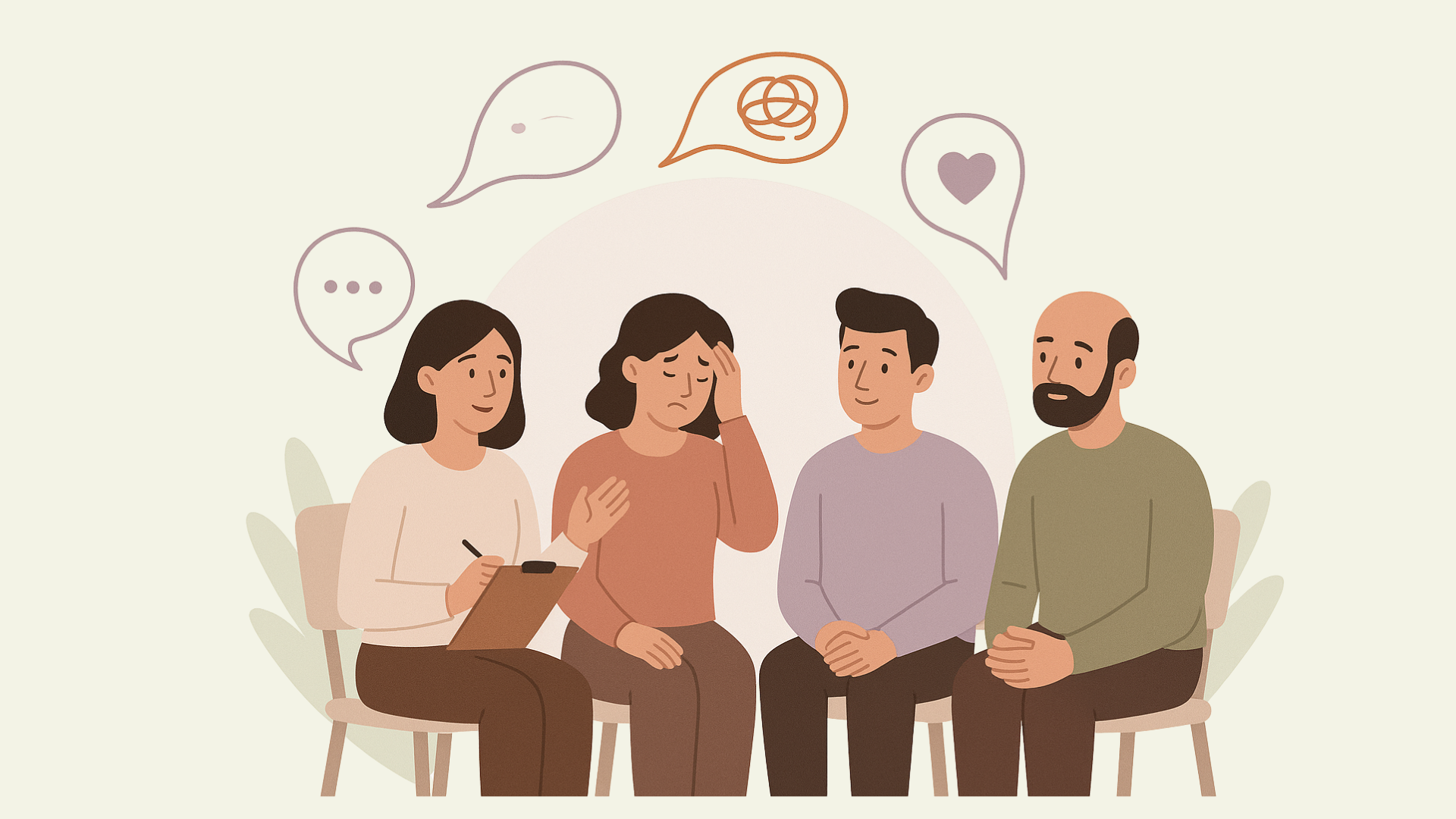Fatherhood and Mental Health: Why dads need support too
Becoming a father is one of life’s most profound transitions, filled with joy, love, and an overwhelming sense of purpose. Yet, beneath this beautiful surface, fatherhood also brings unique challenges and stresses that are often overlooked. Despite societal expectations that dads should embody strength, stoicism, and emotional resilience, many fathers struggle with significant emotional distress that goes unacknowledged. This article sheds light on the mental health challenges fathers face, validates their feelings, and emphasizes that seeking support is not only essential but can lead to profound healing.

The Hidden Pressures of Modern Fatherhood
Fatherhood today is much more complex than it has ever been. Fathers are still largely expected to be the primary providers—shouldering financial responsibilities and working long hours—while also being present, emotionally engaged, and hands-on in parenting. This dual expectation creates intense pressure, leading many fathers to feel overwhelmed by the demands placed on them.
Imagine a father working long hours to provide for his growing family. He may feel guilty about not spending enough time with his children, but when he gets home, exhaustion takes over, and he struggles to engage fully with his family. This internal conflict—trying to balance being a successful provider with being an emotionally available and loving parent—can lead to feelings of inadequacy and isolation. These feelings are far more common than many realize and are not a personal failure, but a reflection of the conflicting demands on fathers today.

Furthermore, fathers often deal with:
-
Identity shifts: The transition to fatherhood changes a man’s sense of self and his role in the family, which can be disorienting.
-
Relationship changes: As fathers navigate their new roles, relationships with partners may shift, requiring both partners to adapt.
-
Financial strain: The financial burden of raising a family can add significant stress, especially when it feels like there’s not enough time or resources.
-
Sleep deprivation: Just like mothers, fathers can face sleepless nights, which affects mood, decision-making, and overall well-being.
-
Lack of support systems: Men often have fewer opportunities or spaces to openly talk about their emotional struggles, which can lead to feelings of isolation.
These hidden pressures can gradually erode a father's mental health, leaving them feeling overwhelmed and unsupported.
Signs of Stress and Depression in Fathers
While postpartum depression (PPD) is often associated with mothers, fathers can also experience similar emotional struggles, including paternal postpartum depression (PPD). Research shows that up to 10% of fathers experience depression during the first year after childbirth, and the rate may be higher if their partner is also struggling.
The symptoms of stress and depression in fathers may not always manifest as overt sadness. Instead, they might show up in other ways, such as:
-
Irritability or anger: Increased frustration or outbursts directed at family members or colleagues.
-
Persistent fatigue: Feeling exhausted even after getting adequate sleep, coupled with a lack of energy.
-
Feelings of inadequacy: Believing they aren’t “good enough” as a father, partner, or provider.
-
Emotional disconnection: Feeling detached from their partner or children, or feeling emotionally numb.
-
Increased stress or anxiety: Constant worry or overwhelming stress, sometimes resulting in panic attacks.
-
Changes in appetite or sleep patterns: Significant weight changes, insomnia, or excessive sleep.
-
Withdrawal from social activities: Pulling away from friends, hobbies, or family gatherings.
-
Increased use of alcohol or drugs: Turning to substances to cope with feelings of stress or depression.
-
Physical complaints: Unexplained headaches, digestive issues, or chronic pain.
-
Loss of interest: A lack of enthusiasm for activities that once brought pleasure.
These symptoms are significant signs that something deeper is at play, and recognizing them in yourself or a loved one is an important first step toward seeking support. If these symptoms persist for more than a couple of weeks, it’s crucial to seek professional help.
How Therapy Can Support Fathers
Therapy offers fathers a safe, confidential space where they can process their emotions and challenges without fear of judgment. For many, this kind of space is rare but incredibly valuable.
Here’s how therapy can make a difference:
-
Processing emotions: Therapy gives fathers a space to explore difficult emotions like guilt, anxiety, anger, and sadness without the fear of being seen as weak or inadequate. It helps fathers understand why they’re feeling the way they are and guides them toward healing.
-
Building coping skills: Therapists equip fathers with actionable strategies to manage stress, regulate emotions, and improve sleep, while also navigating the complexities of fatherhood. Techniques such as mindfulness, stress reduction, and effective communication are commonly used.
-
Reducing isolation: Many fathers feel emotionally isolated. Therapy helps break down these walls, offering a sense of connection and validation that fathers are not alone in their struggles.
-
Developing realistic expectations: Therapy helps fathers challenge unrealistic standards and societal pressures, creating a more compassionate and sustainable understanding of their roles as parents and partners.
-
Improving communication: Therapy enhances communication skills, allowing fathers to express their needs and feelings more effectively, which in turn strengthens their relationship with their partner.
-
Preventative and growth-oriented: Therapy is not just for crises. It can prevent distress from escalating, offering fathers tools for personal growth, self-awareness, and emotional resilience.
For fathers who have limited time due to family or work commitments, online therapy can be a game-changer. It provides flexibility and privacy, allowing for therapy sessions to fit into busy schedules without the need for commuting. This makes therapy more accessible and manageable for fathers who may otherwise delay seeking support.
Starting the Conversation About Mental Health
Opening up about mental health can be challenging, especially for fathers who may not be accustomed to discussing their emotions. However, starting the conversation with a partner, friend, or family member can be the first step toward healing.
Here’s how fathers can initiate these conversations:
-
Choose the right time and setting: Find a quiet, relaxed moment where you can talk without distractions, such as over a cup of coffee or during a walk.
-
Start with “I’ve been feeling…”: Frame your feelings as your own experience. For example, instead of saying “You don’t understand how stressed I am,” say “I’ve been feeling really overwhelmed lately.”
-
Share specific examples: Highlight concrete instances of how you’re feeling or behaving, such as “I’ve noticed I’m more irritable than usual” or “I’m finding it hard to enjoy things I used to.”
-
Express vulnerability: It’s okay to admit when things are tough. Phrases like “I’m struggling with fatherhood more than I expected” or “I’m worried about how I’m feeling and need some help” can open the door to deeper conversations.
-
State what you need: If you know what would help, say it. For example, “I just need you to listen” or “Could you help me find some resources?”
Starting the conversation is often the hardest part, but it is a powerful step toward breaking down barriers and getting the help you need.
Resources and Next Steps
Taking action is the most important step toward addressing mental health challenges. Here are some resources and next steps for fathers seeking support:
-
Explore online therapy platforms: Websites like BetterHelp, Talkspace, and Psychology Today offer easy access to licensed therapists specializing in male mental health and paternal depression.
-
Utilize helplines and crisis lines: If you’re experiencing immediate distress or suicidal thoughts, reach out to a crisis hotline. In the U.S., dial 988 for the Suicide & Crisis Lifeline. In the UK, you can call 111 or contact Samaritans at 116 123.
-
Check with your employer: Many companies offer Employee Assistance Programs (EAPs) that provide confidential counseling sessions or referrals to mental health professionals.
-
Consult your primary care physician: Your doctor can assess your symptoms and provide referrals to mental health specialists.
-
Join a support group: Online or in-person support groups for fathers can provide a sense of community and shared experience. Organizations like Postpartum Support International (PSI) offer resources for fathers as well.
-
Read mental health websites: Websites like the National Institute of Mental Health (NIMH) and Mental Health America (MHA) offer valuable resources on depression and men’s mental health.
Conclusion
Fatherhood is a transformative journey, but it’s also one that comes with unique emotional challenges. Understanding the signs of stress and depression in fathers, acknowledging the pressures men face, and seeking help are key steps toward healthier, more fulfilling lives for both fathers and their families. Prioritizing mental health and well-being is not a sign of weakness, but an act of courage and love. Asking for help empowers fathers to be more present, engaged, and emotionally available for their families. Take that first step today—your well-being matters.
Amira Khan
Mental Health Advocate
Category





